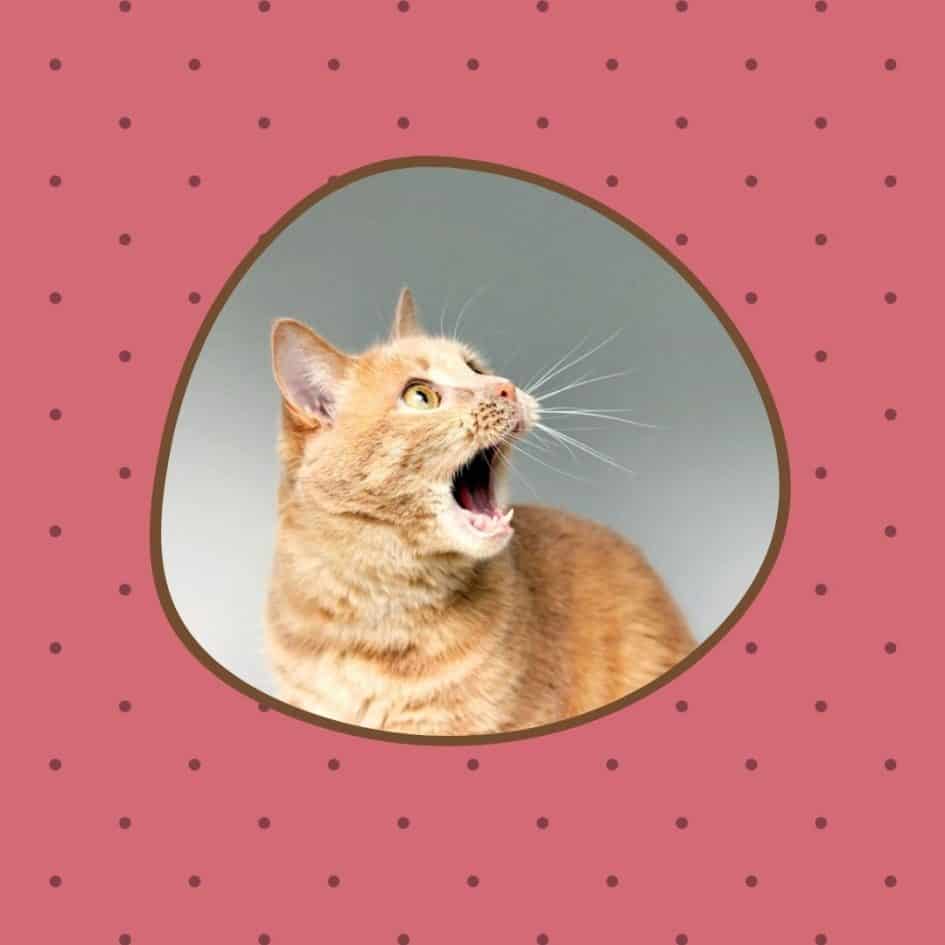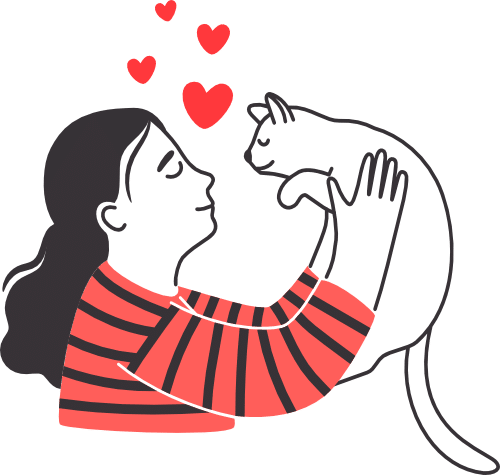

Why is My Cat Foaming at the Mouth?
To see your cat foaming at the mouth can be terrifying, to say the least. Thankfully, in most cases, this symptom is very treatable.
To see their cat foaming at the mouth can be a terrifying sight for any pet-parent. Often, the very first thought is that of rabies – something that can cause further bewilderment if your cat is already vaccinated.
While rabies is one possible cause of mouth-foaming, there are a few other reasons as well, which we will be discussing in this blog.
Reasons that Your Cat Might Be Foaming At the Mouth
1) Rabies
Rabies, like we mentioned, is often the first thought that pops up when a cat owner notices their pet foaming at the mouth.
Rabies is certainly a possibility, especially if your cat has been around other animals as of late. However, if your cat has had the rabies vaccination, the probability of them catching this disease is extremely low.
Also, since mouth-foaming is one of the indications of late-stage rabies, this is not the very first symptom that your kitty would have developed had it been rabid.
A couple of other signs of rabies include drooling and behavioral changes (such as aggression or unsociability).
Unfortunately, rabies does not have any cure (only prevention, in the case of booster shots). So, if your cat has become rabid, you might not have any other choice but to euthanize.
2) Nausea
Like we mentioned, as long as your cat is vaccinated, there is a close to zero chance that rabies is the culprit behind the foaming mouth.
Often, something as benign as nausea can also cause this symptom. Alongside foaming at the mouth, a nauseous cat will feel fatigued, and will have an abnormally low appetite.
Nausea, of course, has a wide range of causes, including motion sickness, pregnancy, gastritis, and even diabetes.
3) Stress and Anxiety
Sometimes, this physical symptom is not indicative of a physical problem but a mental or psychological one. If your cat is foaming at the mouth, it might be suffering from some sort of emotional distress.
These distresses can stem from separation anxiety, the presence of other house pets, fear response triggered by an encounter with someone unfamiliar, or even from a change in routine or location.
A stressed-out or anxious cat might start pacing across the house, turn hyper-vigilant, indulge in excessive grooming and, of course, foam at the mouth.
If you think that your cat might be anxious or agitated, you should try identifying and addressing the root cause behind their condition. If you are having trouble calming your cat down, you should consult a veterinarian and use medicines that might be able to help you out.
4) Dental Problems
Just like abscessed teeth lead to pain and discomfort, dental issues in felines can also lead to foaming at the mouth.
For instance, if your cat breaks a tooth or develops gingivitis, not only can they suffer pain, a reduction I appetite, and foul-smelling breath, but they can also start foaming at their mouth (especially if the dental problem persists).
For this reason, veterinarians recommend cat-owners to routinely brush their pets’ teeth.
Once again, if you suspect that your cat is suffering from a dental condition, you should not waste time in scheduling a veterinarian appointment and getting your cat’s teeth and gums thoroughly examined.
5) Poisoning
The idea that your cat has been poisoned is perhaps as – if not more –scary than the thought of your cat getting rabies.
If you feel that your cat might be suffering the effects of poisoning, you should immediately seek emergency care.
Flea medications, either applied topically on the coat or mistakenly ingested by the cat, can lead to oral foaming.
Also, things with a bitter taste – such as medications or certain foods – could also cause your cat to start foaming at the mouth in response to the undesirable taste.
There is a wide range of ways in which cats could inadvertently ingest poison – from mistakenly ingesting some house product, to eating poisonous birds or frogs. We are telling you this so that you do not immediately direct your suspicions towards your new, surly neighbor.
Thankfully, even if your cat has been poisoned, there is a high chance that timely medical intervention will help your feline friend make a complete recovery. The vet will take steps to induce vomiting, or make your cat consume some charcoal that will help absorb the poisons present in the digestive tract. In addition, IV fluids might be given to replenish any fluids that were lost as a result of the vomiting.
6) Seizures
As long as you are present at the time, detecting if your cat is suffering from a seizure is a pretty straightforward job. This is because the symptoms associated with feline seizures are almost identical to those of human seizures.
For example, during the seizure, your cat will fall over, shake and tremble, or even lose consciousness. Alongside these symptoms, cats going through a seizure will also start foaming at their mouth.
If you believe that your cat is displaying seizure-like symptoms, you should take a trip to the veterinarian to identify the cause and come up with a treatment plan.
Thankfully, there are quite a few medications available to treat seizures; these medications often help reduce the frequency of seizures, and might sometimes be able to get rid of them altogether.
7) Viral Infections
Aside from rabies, there are several other viral infections that can cause your cat to start foaming or drooling at the mouth. One example of such viral infections is calicivirus, which is an infection of the upper-respiratory system, and not dissimilar to the common cold found in humans.
If an infection is suspected, your veterinarian will prescribe one or more blood tests to confirm the suspicion and to determine the stage of the infection. Besides, you will be asked if your cat has been around other animals recently, and to keep your pet isolated so that the infection does not spread.
In case of any secondary bacterial infections brought about as a result of the initial viral infection, your cat might also be administered antibiotics, along with restorative fluids. Proper nutrition, rest, and (occasionally) oxygen therapy are the tools employed to deal with any upper-respiratory infections.
Final Word
To sum up, a cat foaming at the mouth does not automatically spell rabies; as we just discussed, there are a number of other conditions that can cause this symptom. However, the only way you will be able to identify the cause behind mouth foaming is through a veterinarian examination.
Fortunately, most cases and causes of mouth foaming can be effectively treated through medications and other therapies, and the prognosis is generally positive. The sooner you begin treatment, the sooner your kitty’s health will start improving.
To learn more about the common health conditions in cats and how to identify them, please feel free to check out some of the other blogs on our website.
Discover how to create a joyful, healthy home for your pet.
Subscribe to your weekly rundown of practice, real life ideas and training tips straight to your inbox.


